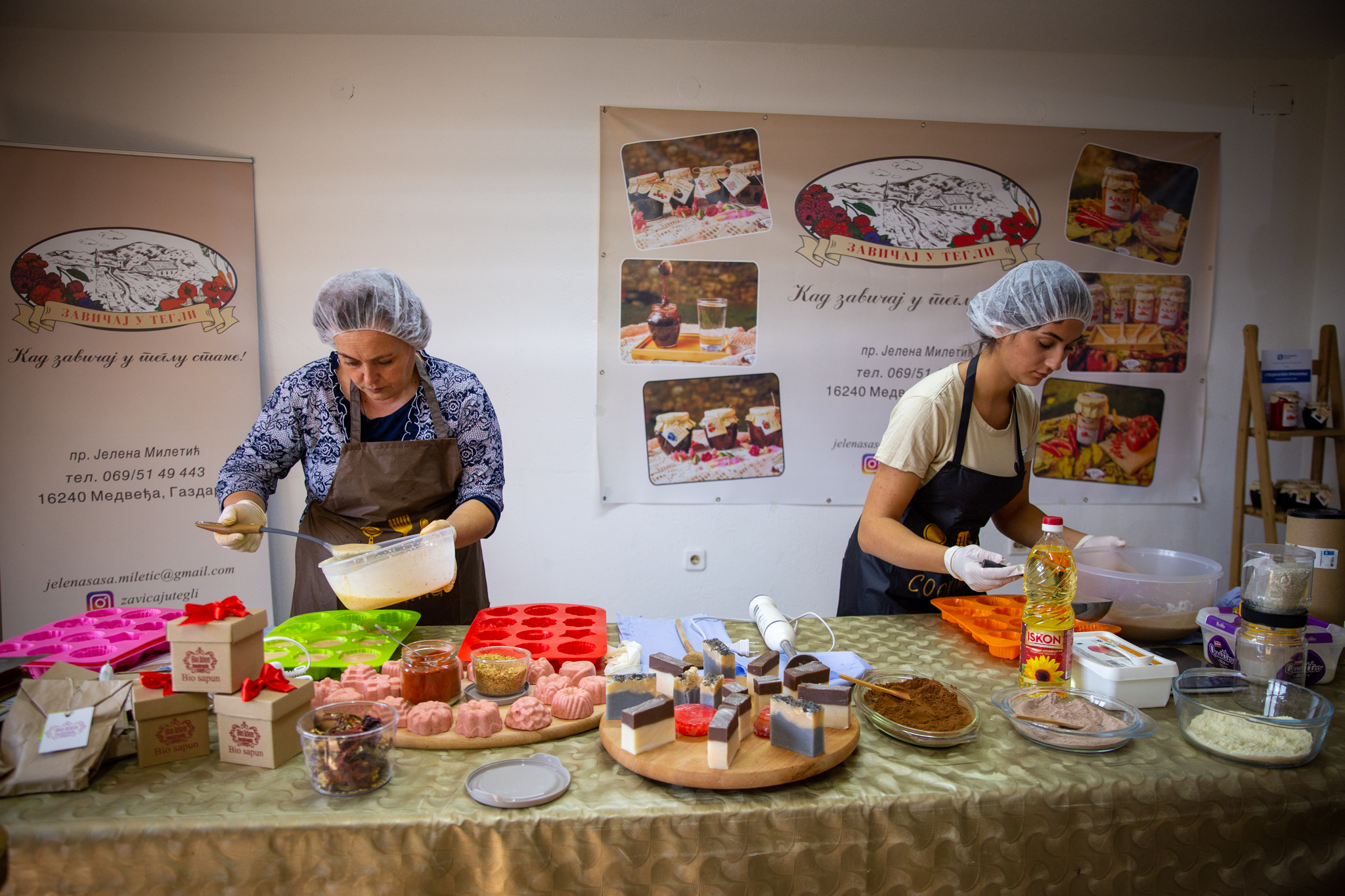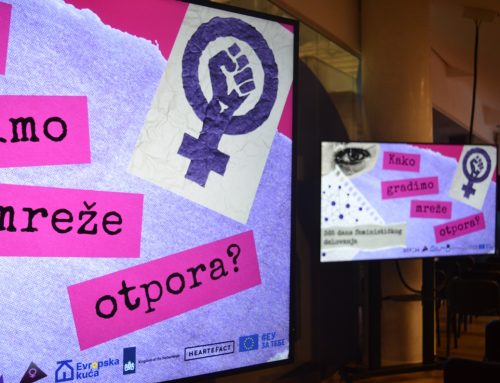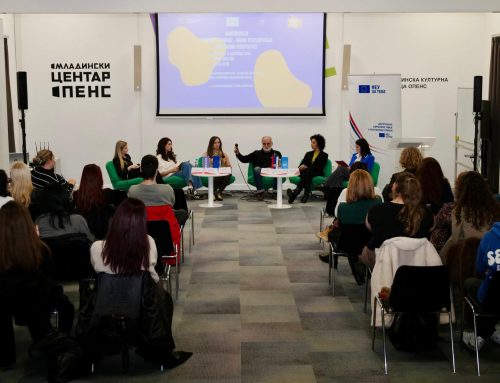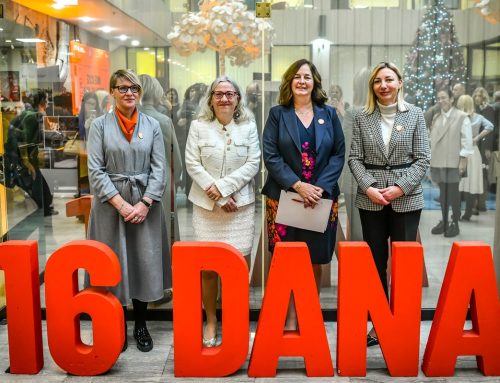Did you know that from one kilogram of ajvar produced in the traditional way, one kilogram of waste remains, consisting of stems, seeds and other parts of peppers. It is estimated that in the south of Serbia, during the ajvar production season, as many as 21,000 tons of this bio-waste is generated, which usually ends up in wild landfills.
Jelena Miletic from Medveđa, the owner of the company “Zavičaj u Tegli”, produces ajvar and all the waste that does not go into ajvar, she makes soaps from it. How did this symbiosis of ajvar and soap come about?
„I have two children and my job is seasonal and I literally have work 2-3 months out of the year. I had to give us something to do in the off-season, so I met Sanida in Belgrade at the ecology fair and she accepted me into the franchise so that we could make soaps. It provides sales channels which is great for me. That’s when I came up with the idea of not producing waste, but drying the remains of paprika and adding it as an active component in soaps“, Miletić says.
This is a true example of a circular economy, because in Jelena’s case, none of the pepper is wasted in the production of ajvar.
„The linear economy works according to the “use and throw away” principle, while the circular economy closes the circle and there is no waste. We dry the rest of the paprika, grind it, add it further to the soaps, there is no waste“, Jelena concludes.
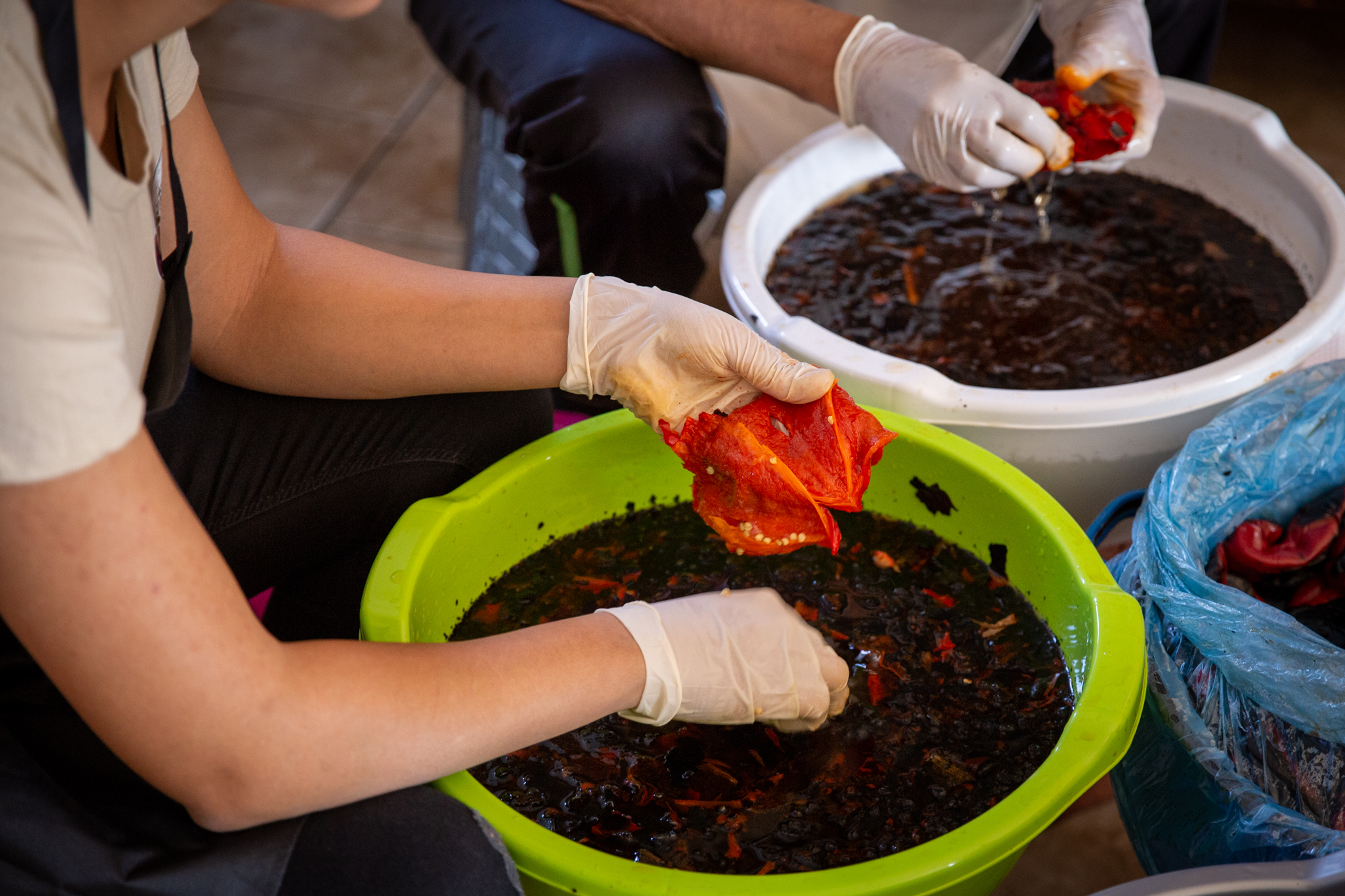
Sanida Klaric, founder of the BIO IDEA association for sustainable development, works in the field of environmental protection and social entrepreneurship with a special focus on women’s circular entrepreneurship. Through her association, Sanida helped Jelena to improve and expand her production and explains how the cooperation with her and “Zavičaj u Tegli” came about.
„BIO IDEA for sustainable development is an association that formed a specific network called Social Franchise, which is completely free, where we provide know-how for the production of soap and candles, so that women who do not have adequate resources can start their own business. Social franchising enables joint procurement of raw materials and joint sales. This is very important because BIO IDEA for sustainable development has signed contracts with socially responsible companies for the purchase of these ecological products of social entrepreneurs“, Sanida said.
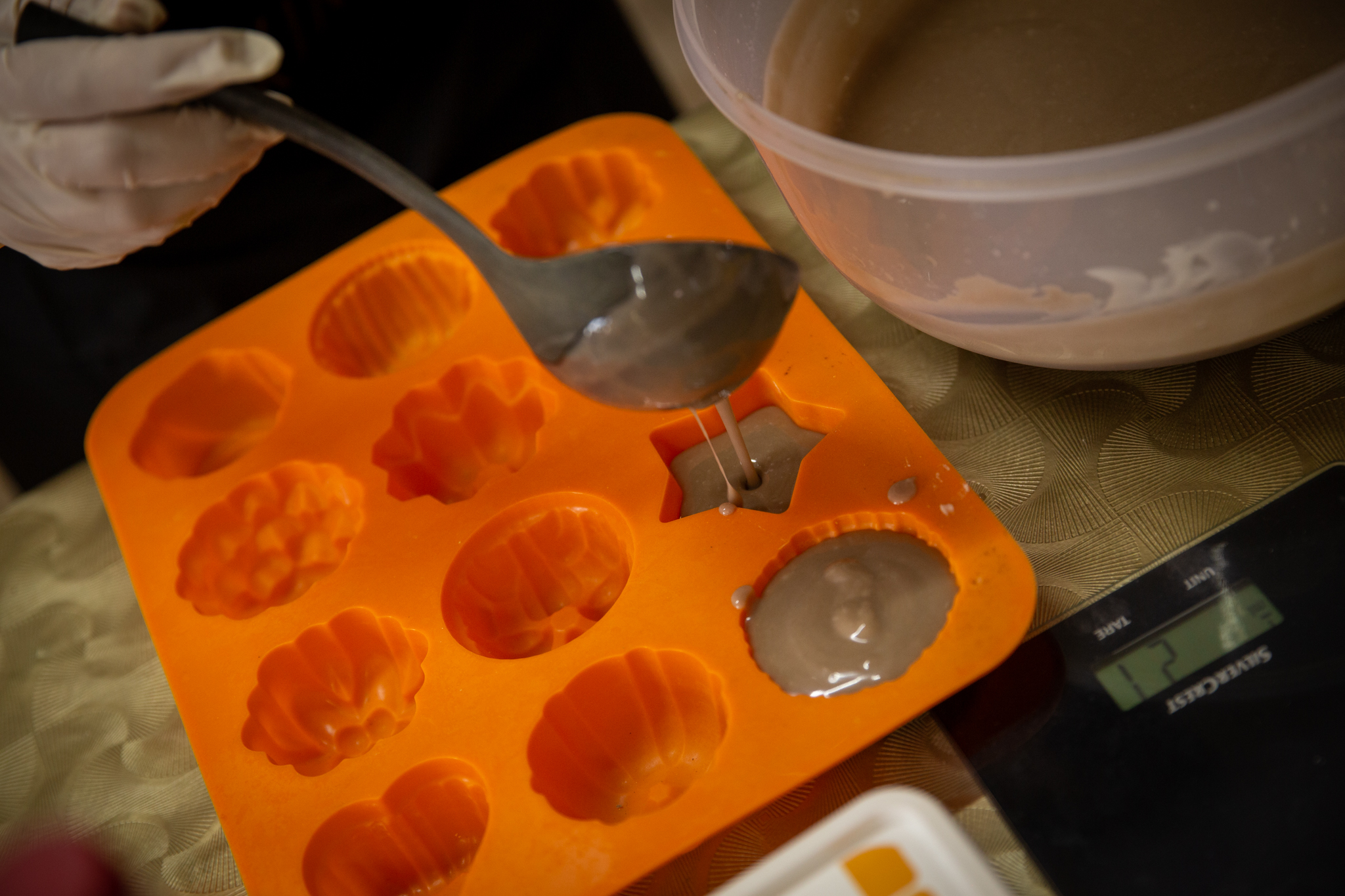
The promotion of female entrepreneurship is also the focus of Bio Ideas for Sustainable Development, which in many ways additionally encourages women to use their business ideas and the opportunities offered to them.
„The most important thing is networking and solidarity, because if this social franchise is free, we simply ask our beneficiaries to continue sharing it knowledge for free“, Sanida noticed.
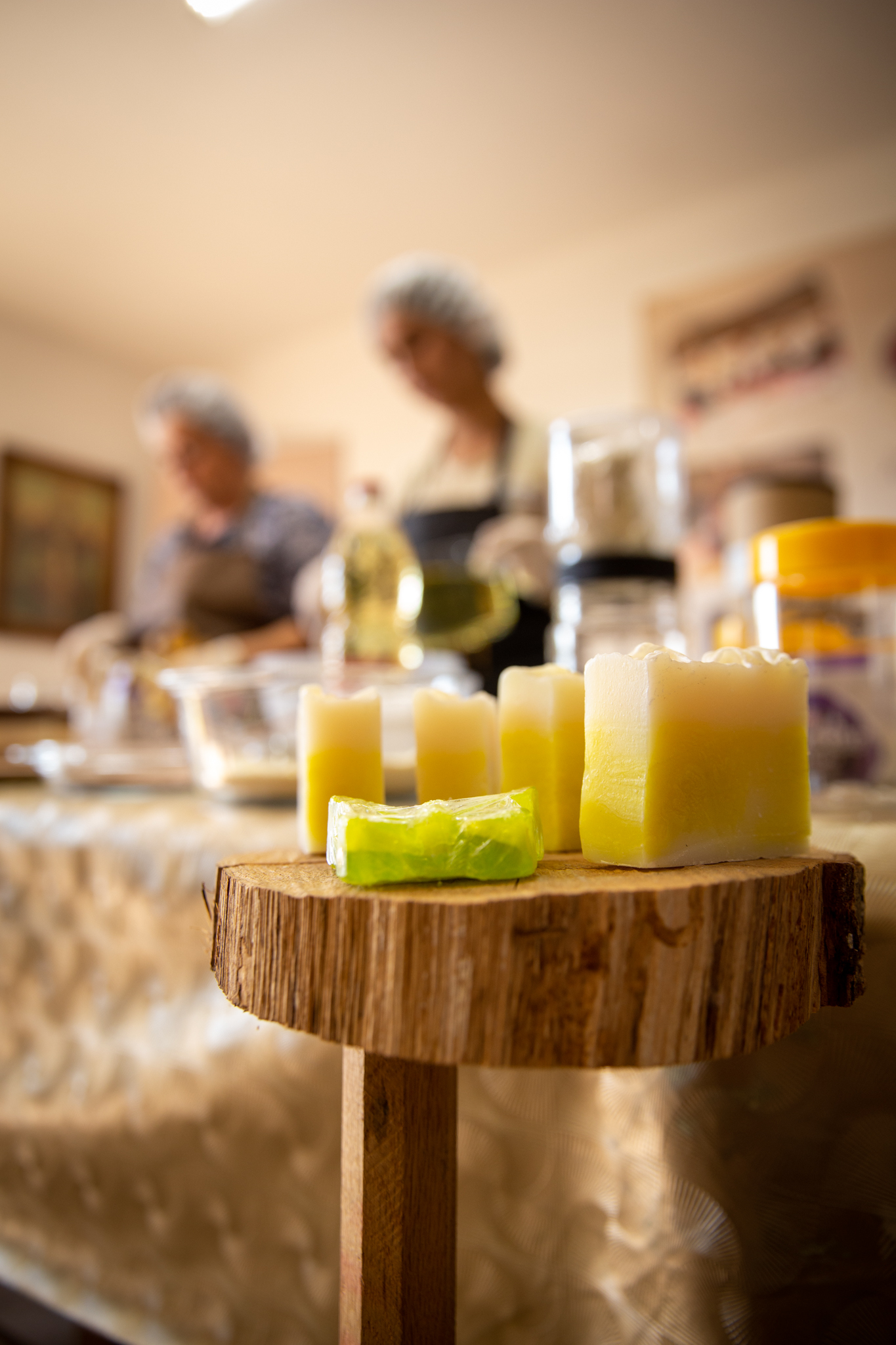
In order for female entrepreneurship to gain the importance it deserves, tectonic changes are needed, as Sanida says, but also the inevitable help of institutions.
„Entrepreneurs, the word itself says, they undertake something to make certain changes. All the changes we want to make in our lives and in society must be initiated by ourselves. What I would tell them is to never give up. We are as big as how many times we get up, not how many times we fall. That’s why you should join the BIO IDEA social franchise network and the industrial symbiosis network that was formed here in Serbia with the support of the European Union“, Sanida concludes.
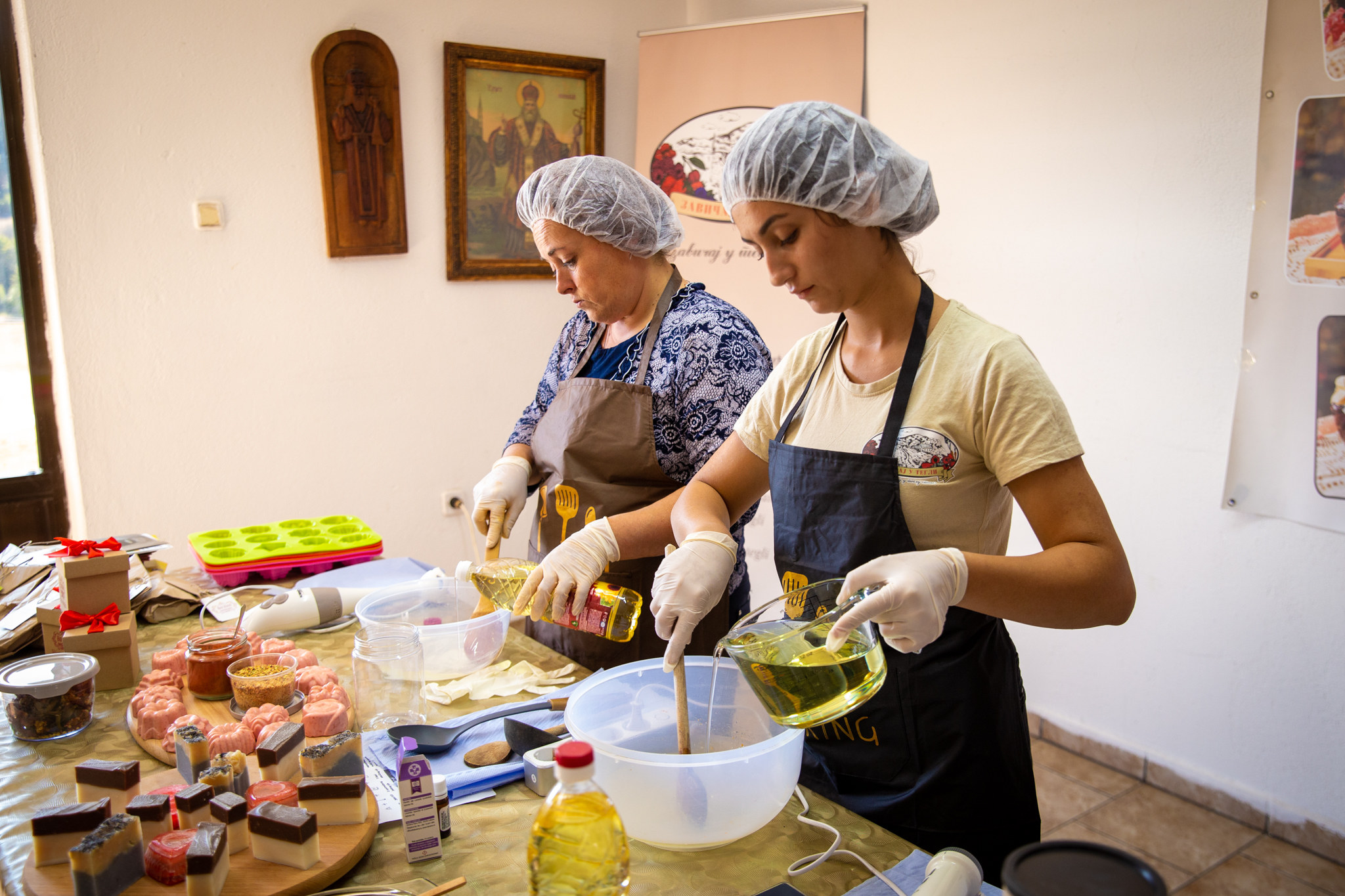
The call for innovative solutions for the green transition of the Serbian economy is still open. Public, private and social enterprises, research institutions, civil society organisations, farmers’ associations and cooperatives, local governments and managers of protected areas can apply for it, individually or jointly. If you have a good idea for decarbonisation (reducing dependence on fossil fuels and switching to renewable energy sources), circular economy, reducing environmental and air pollution, protecting and preserving nature and establishing sustainable systems for food supply and rural development, apply via the EUzaTebe website or UNDP.

